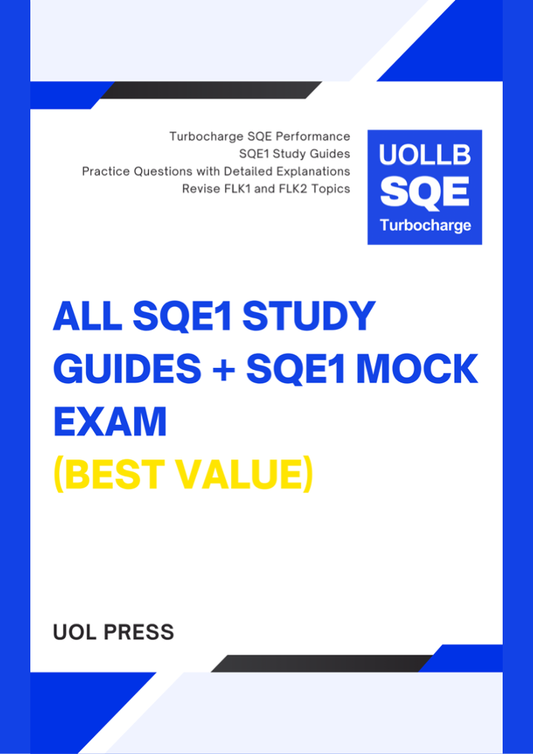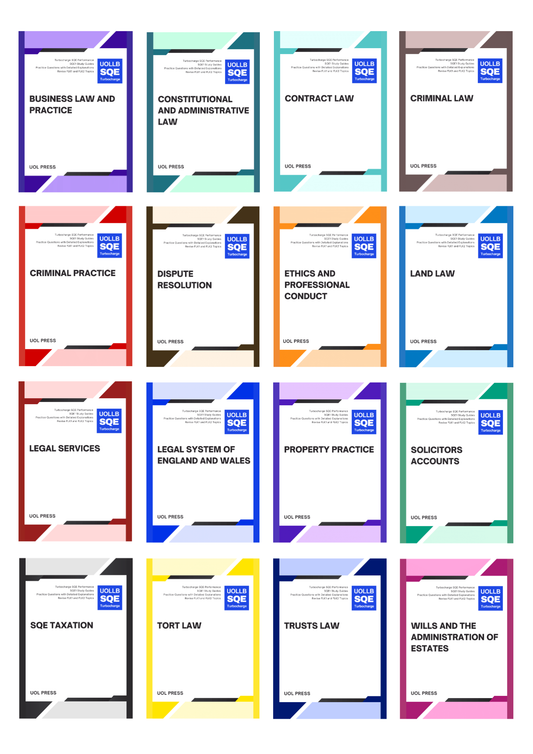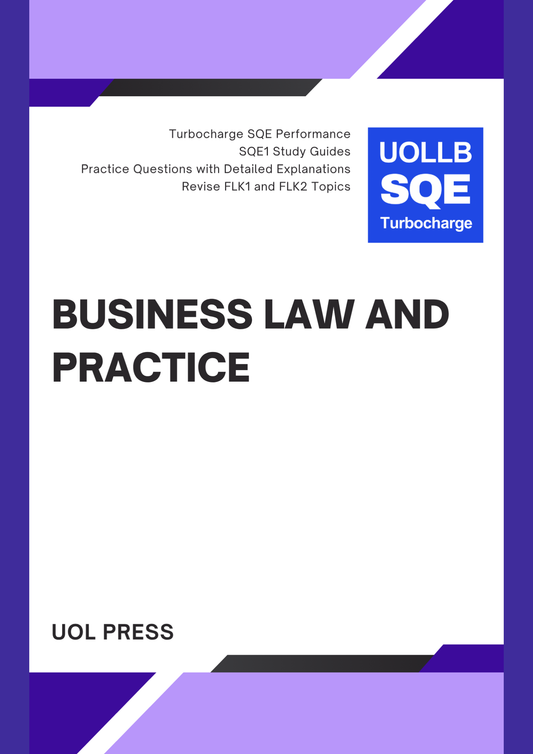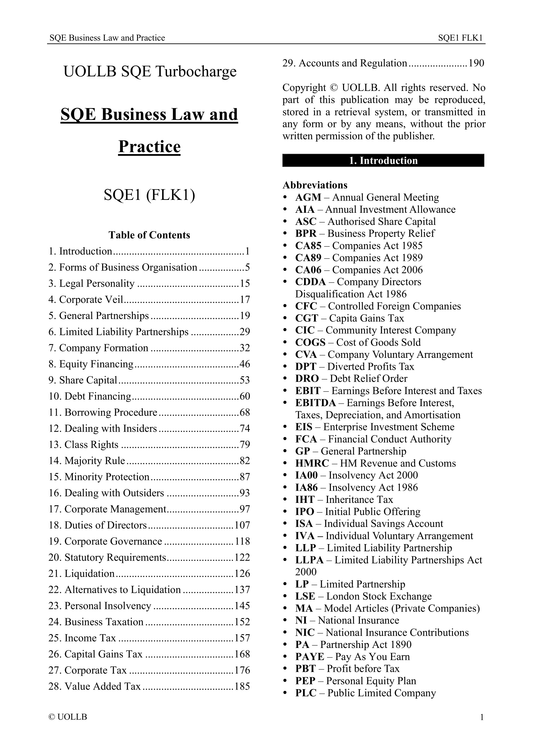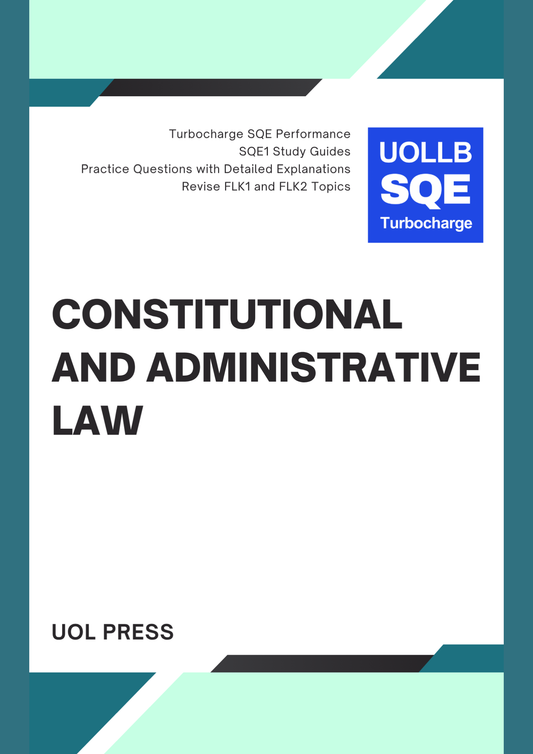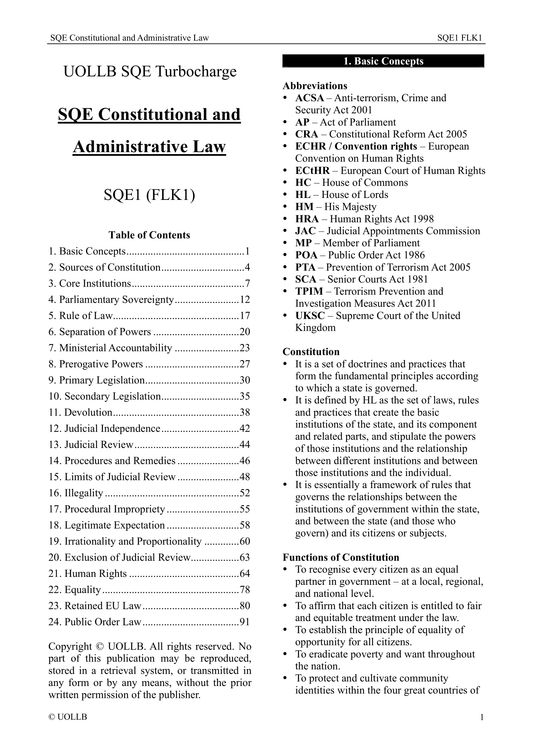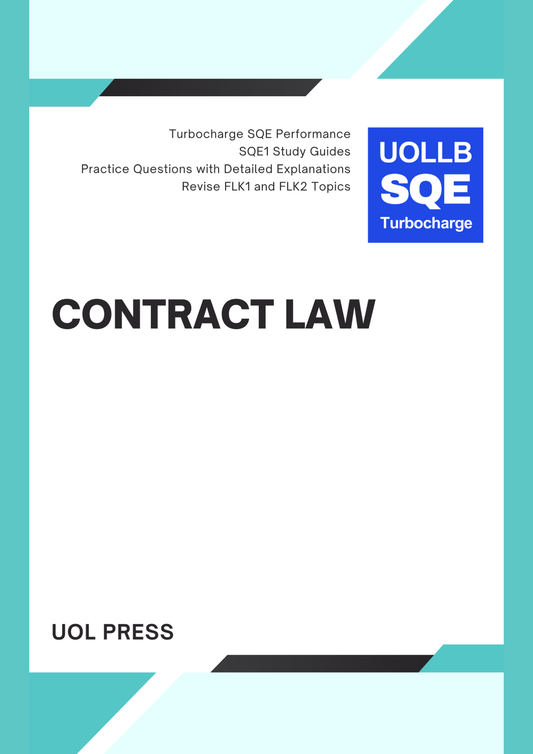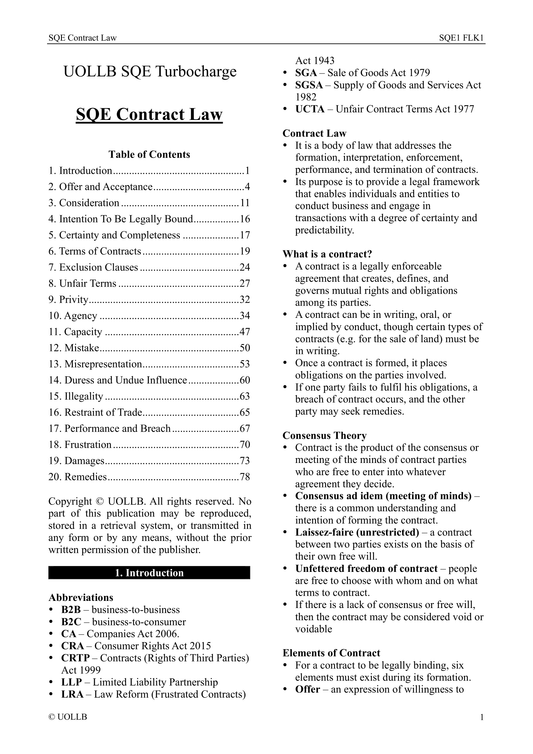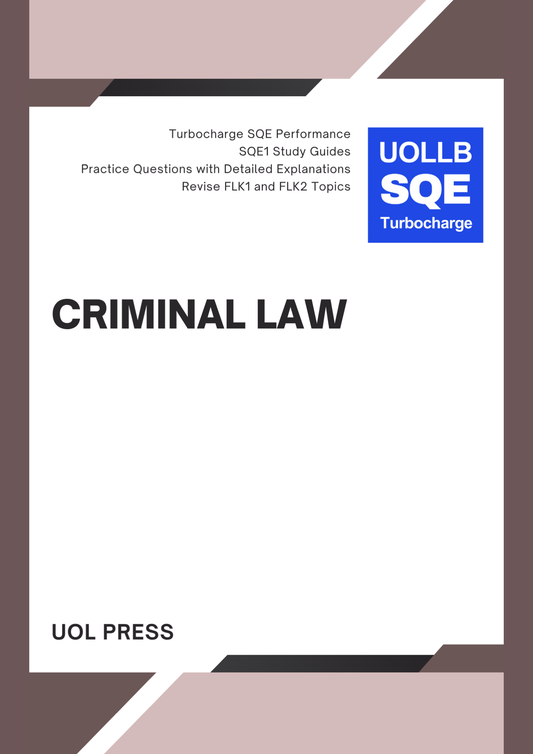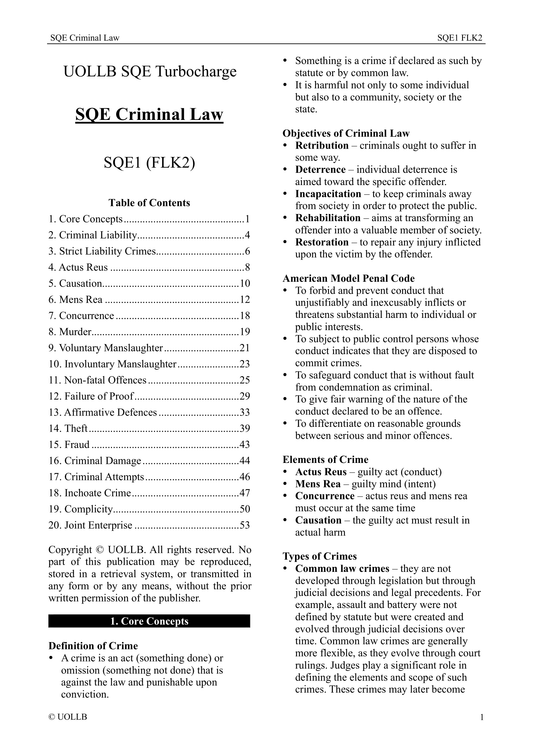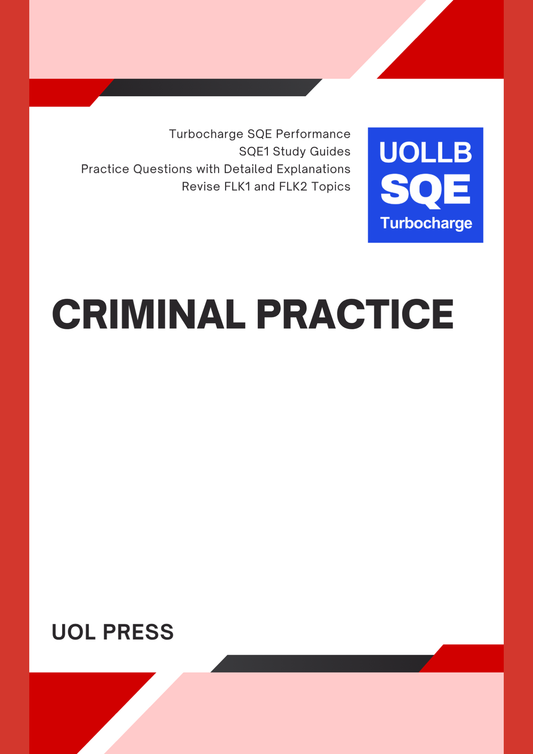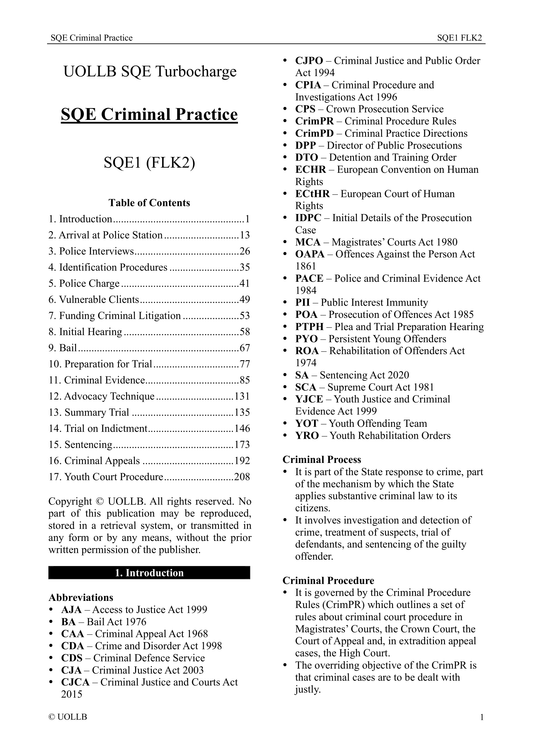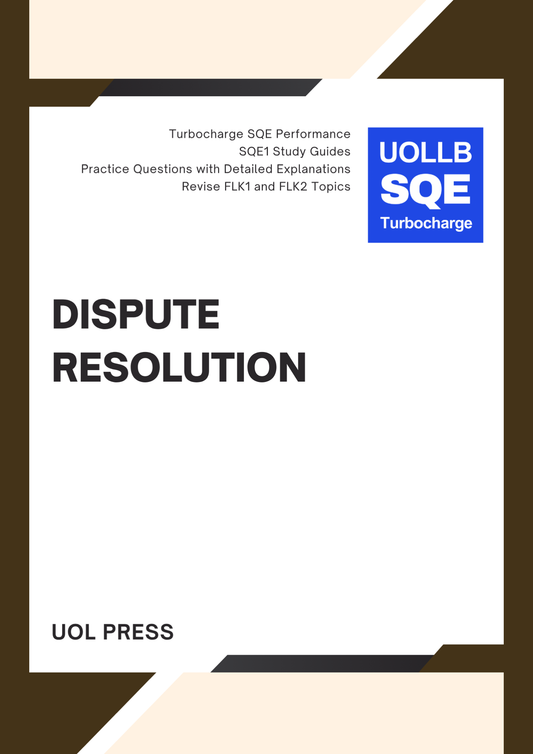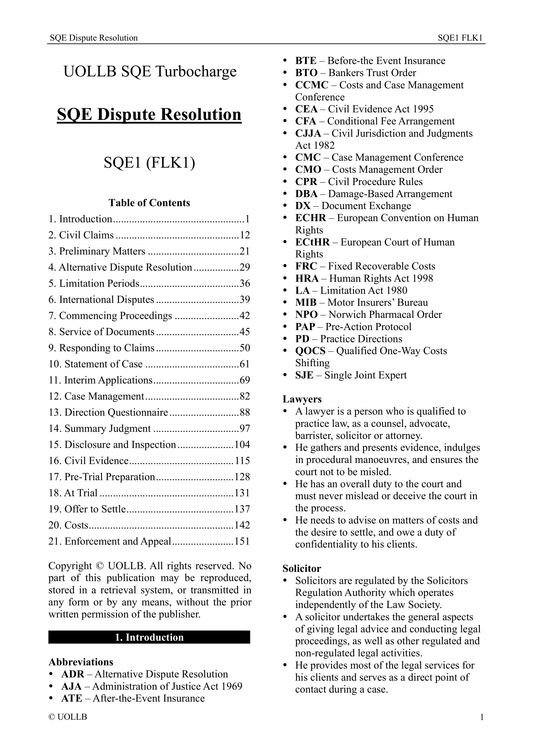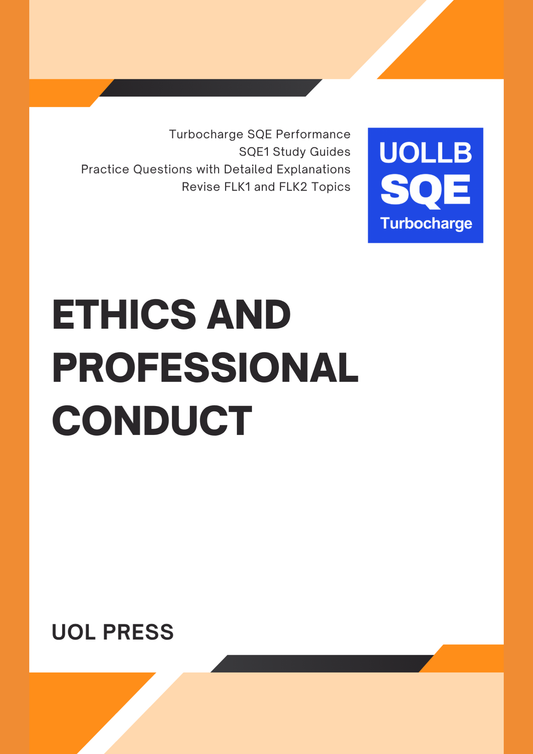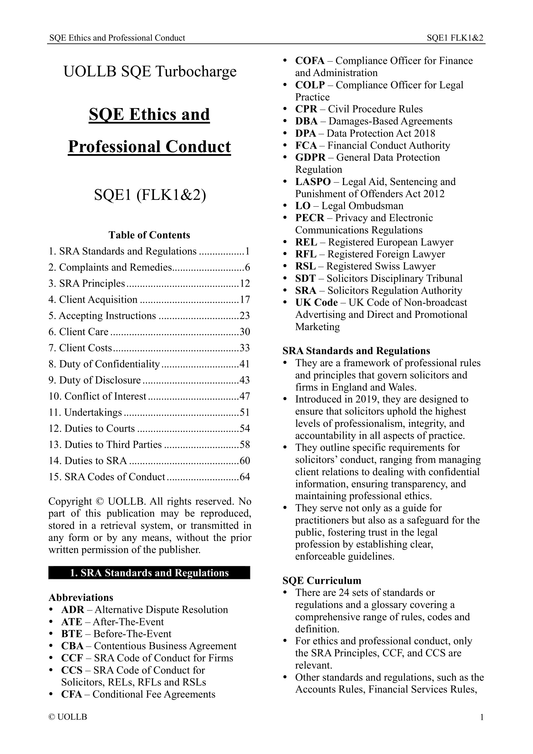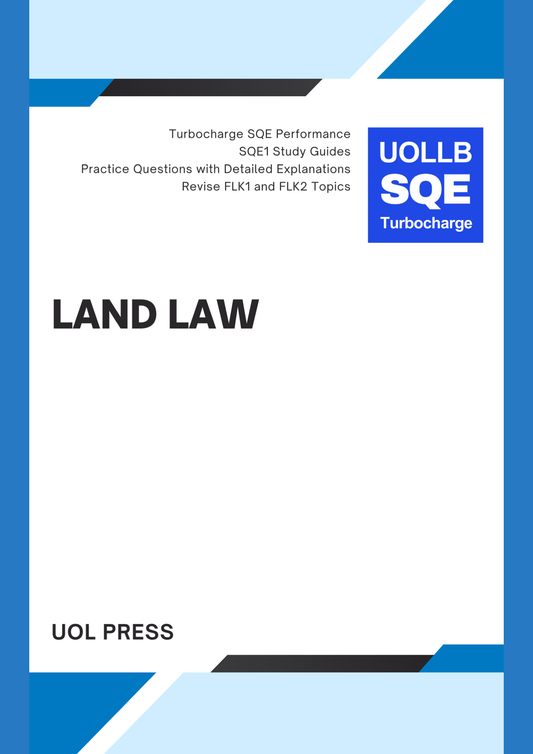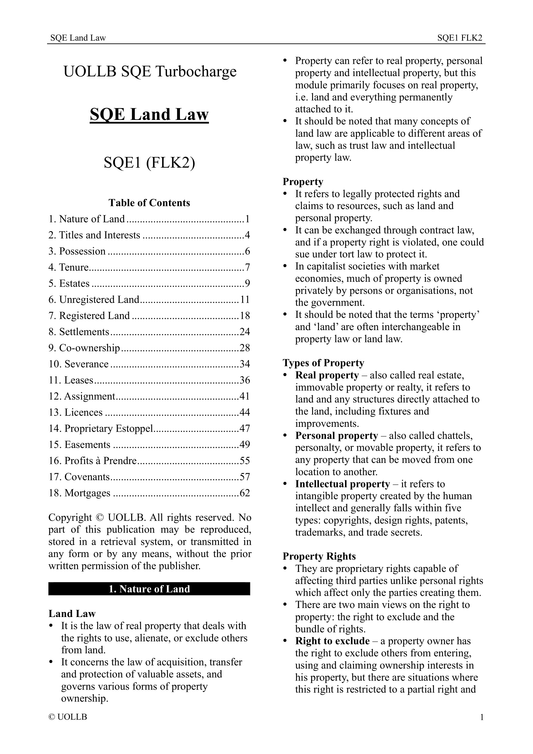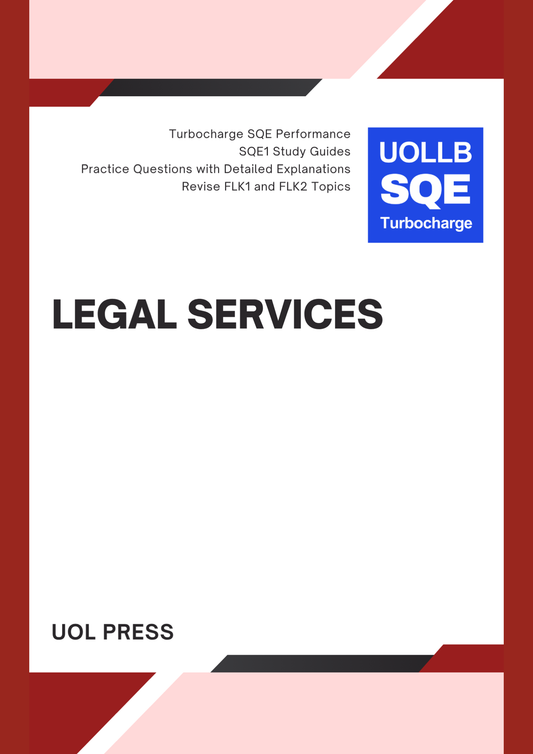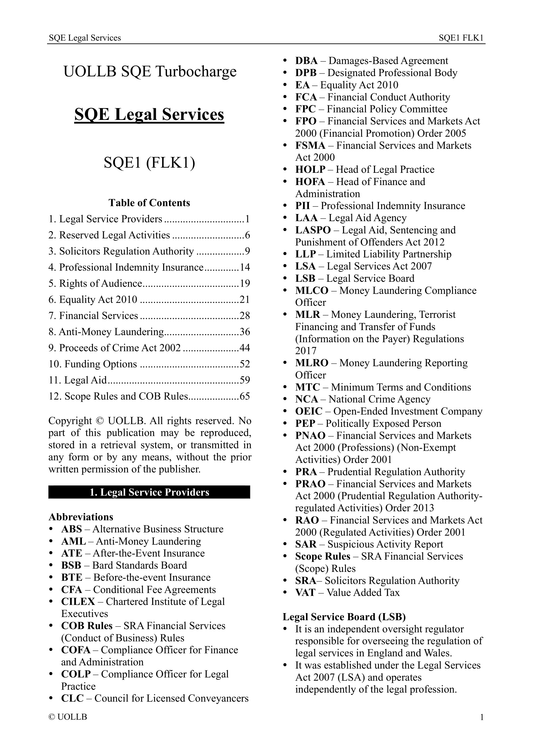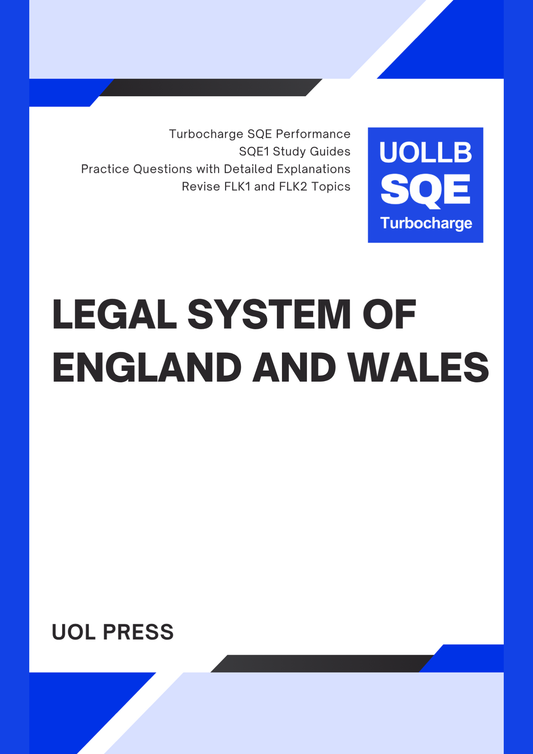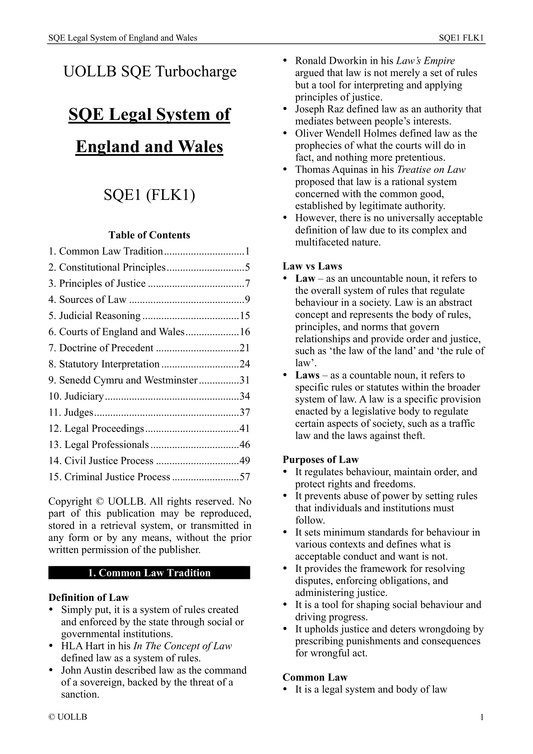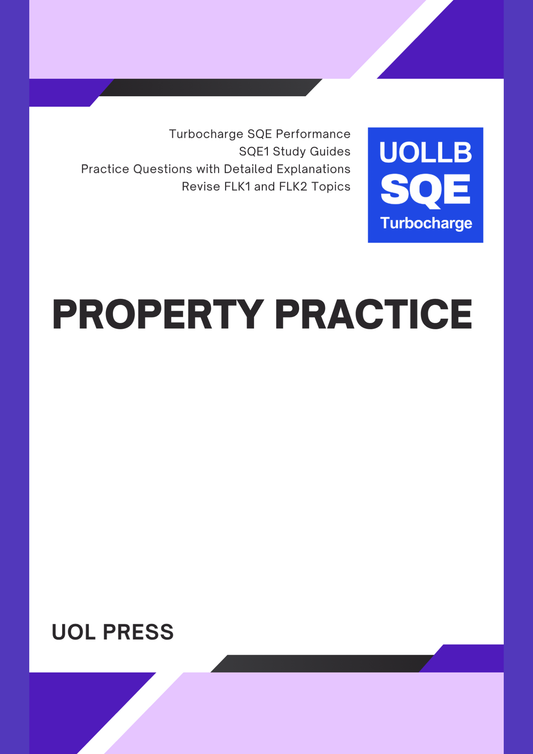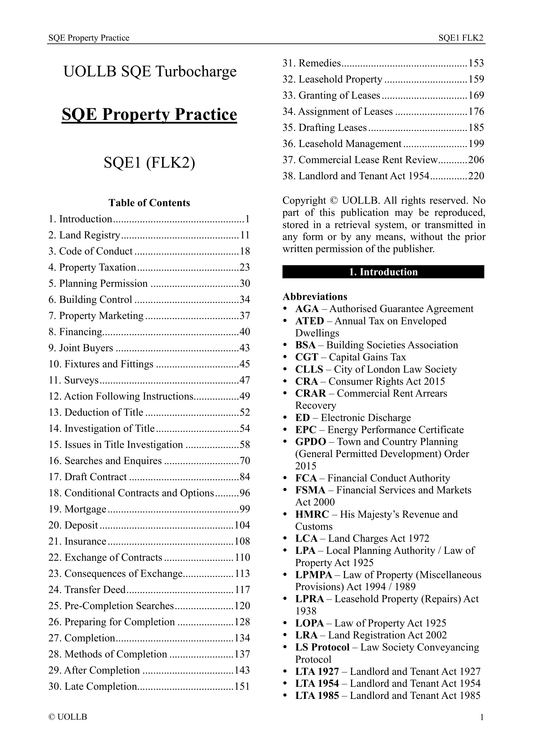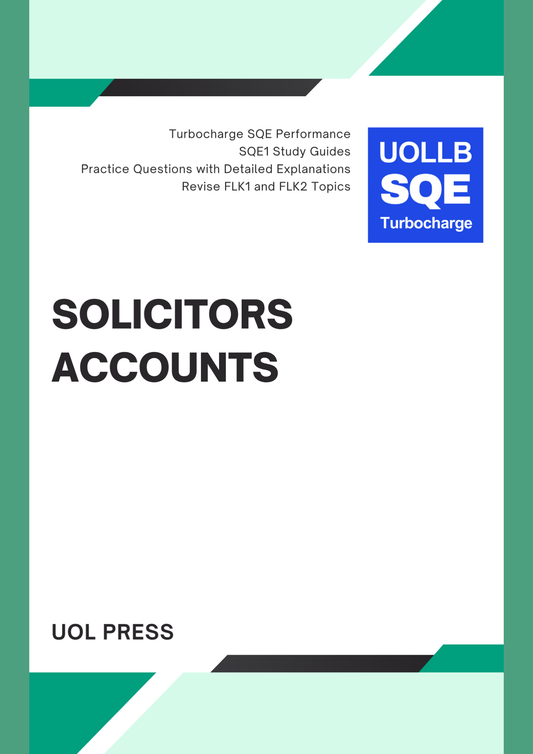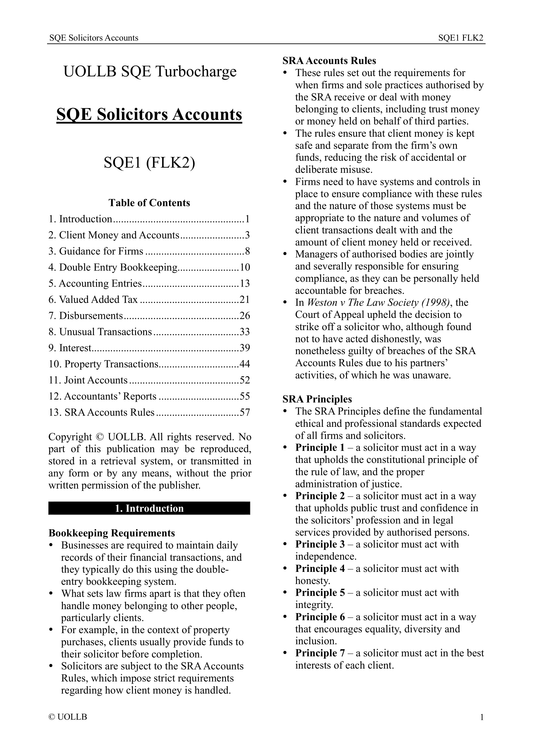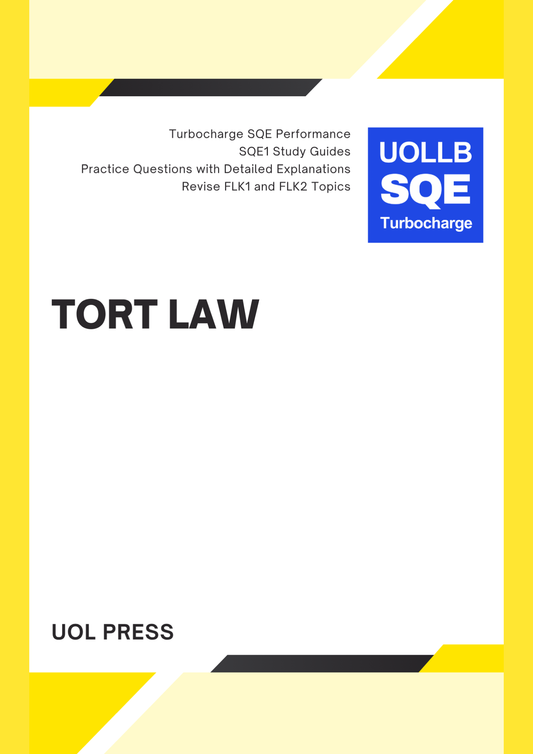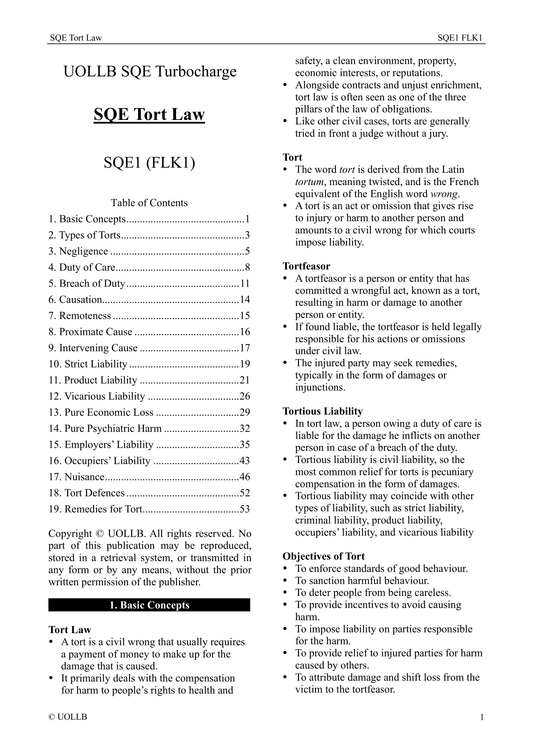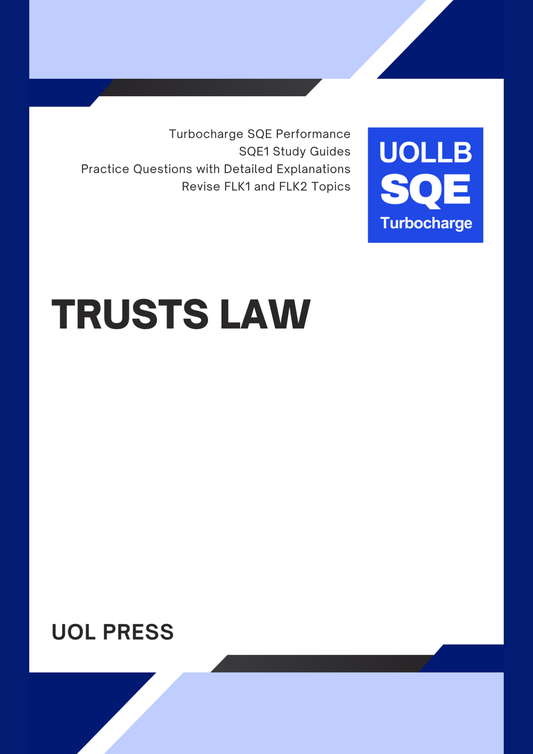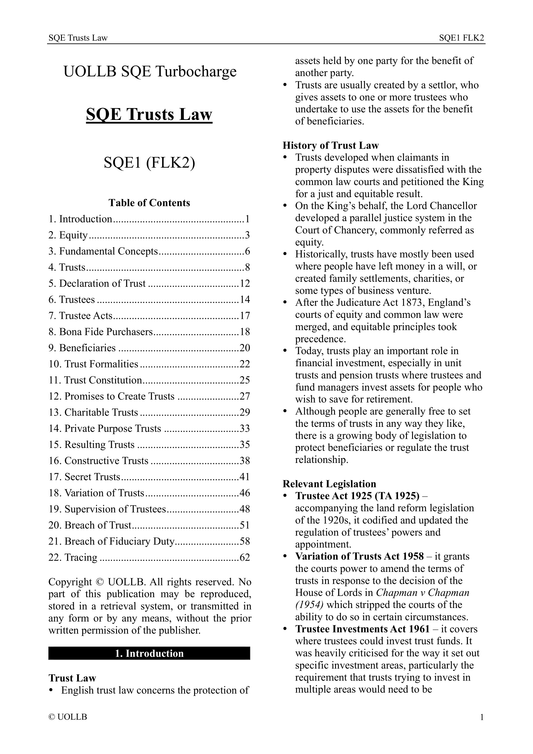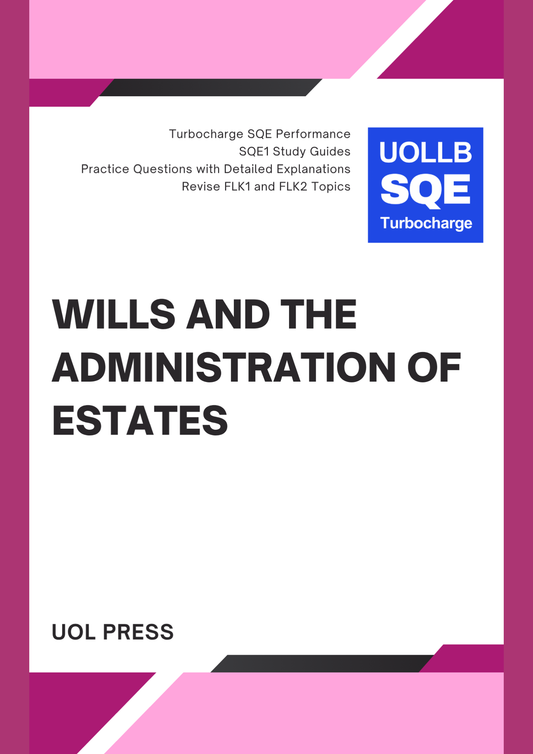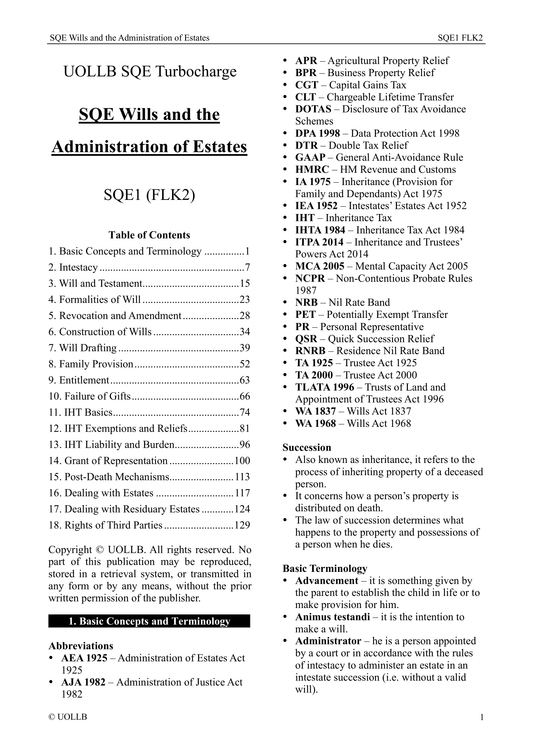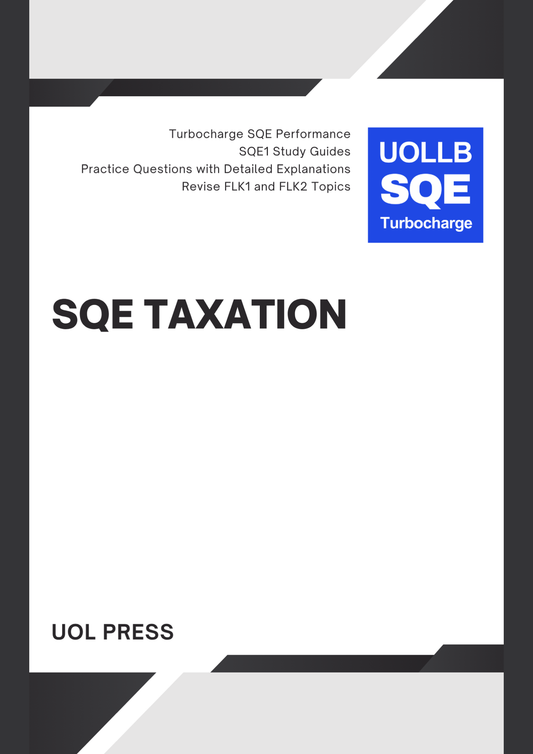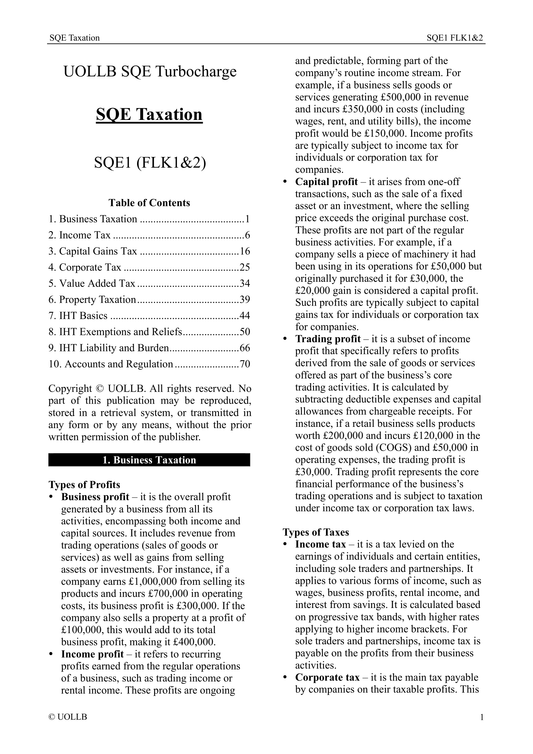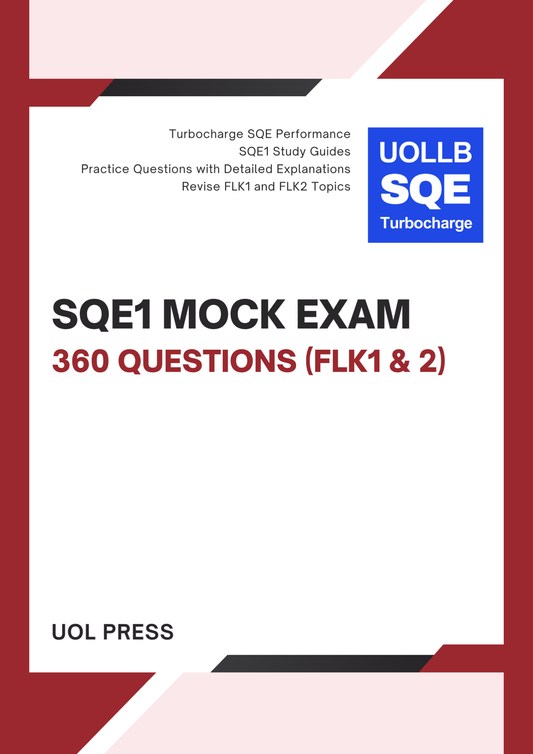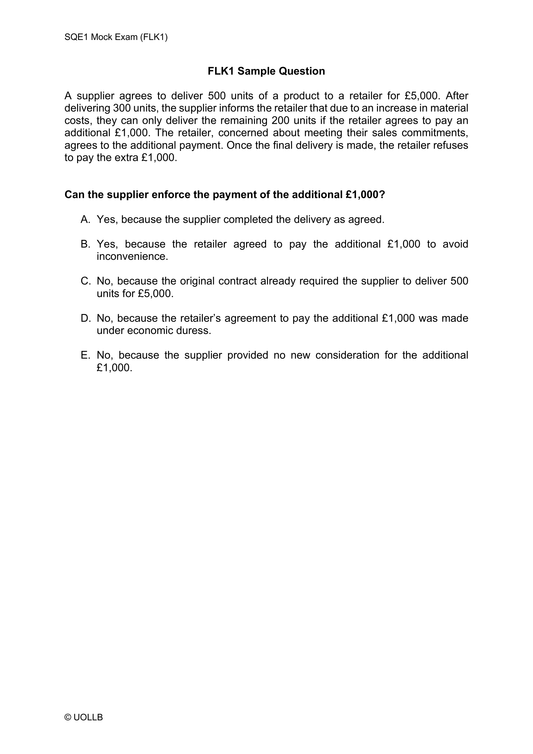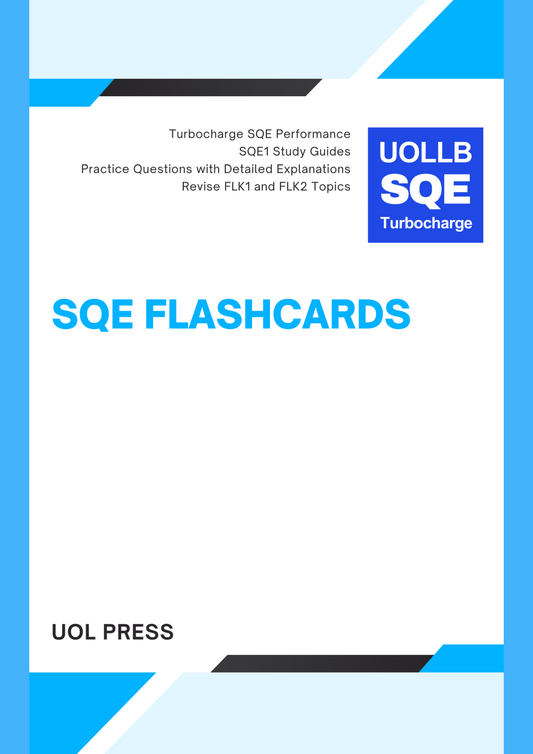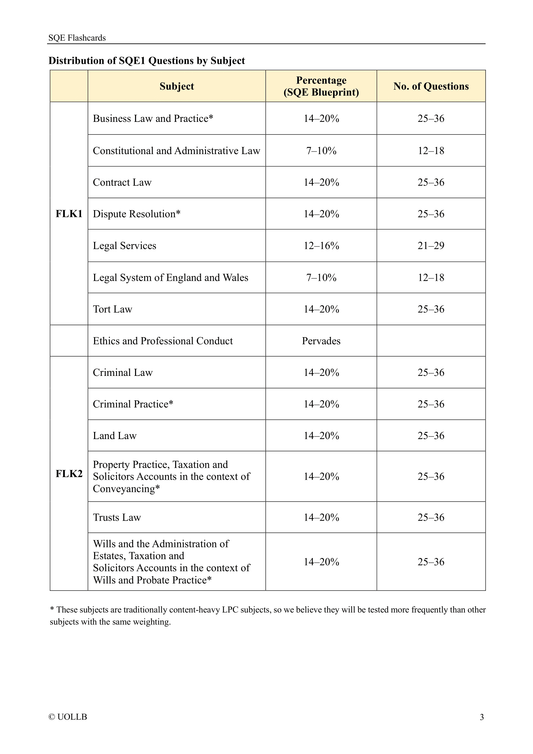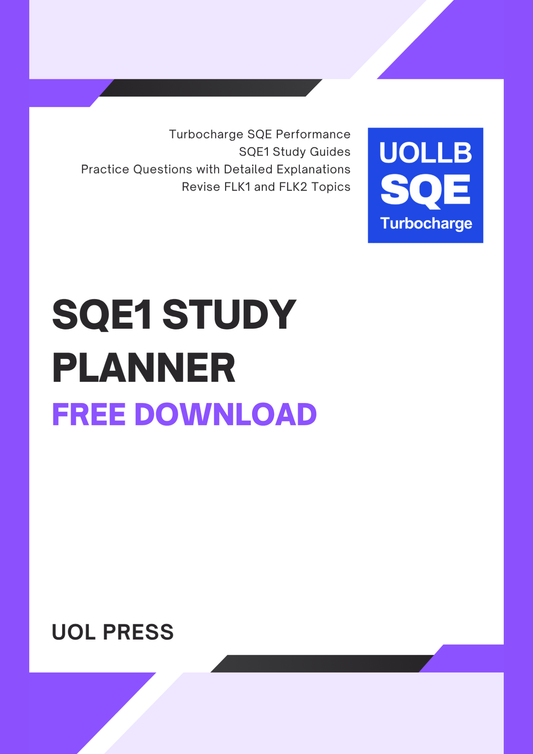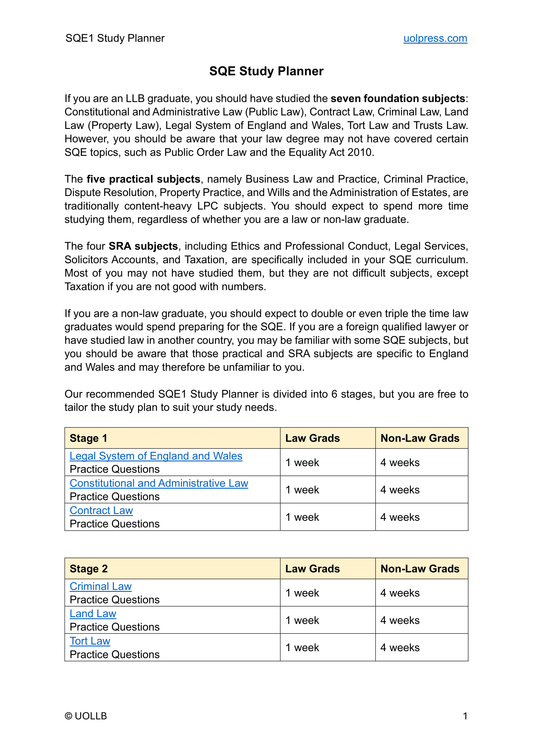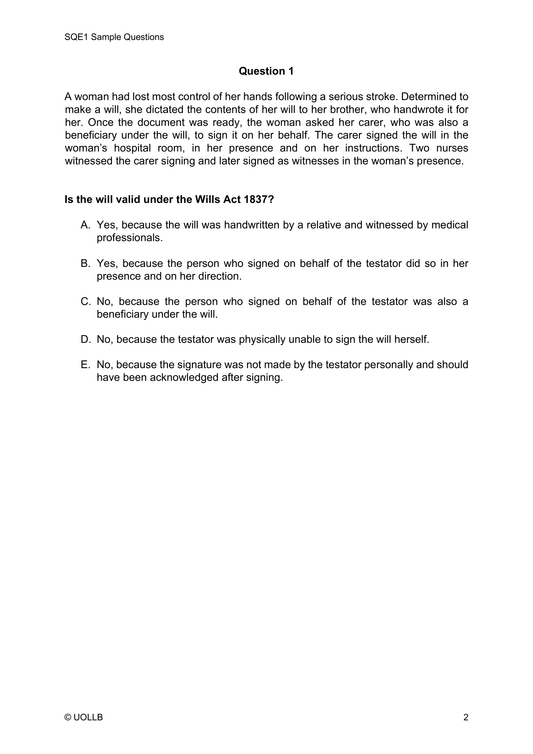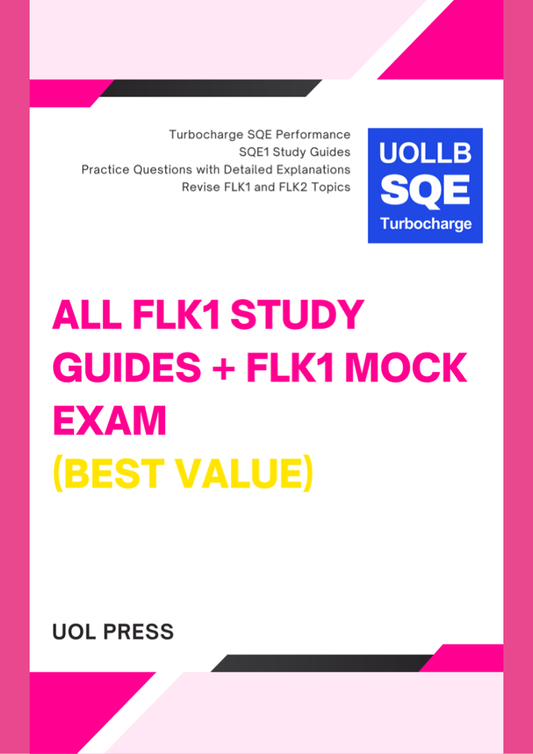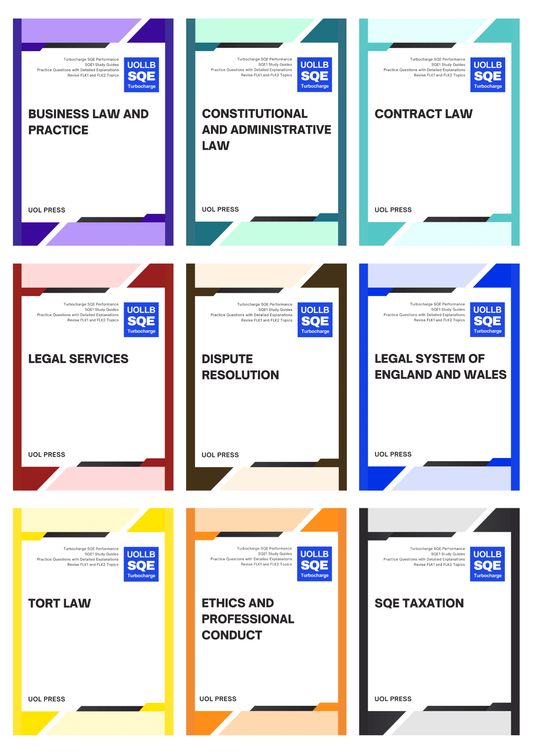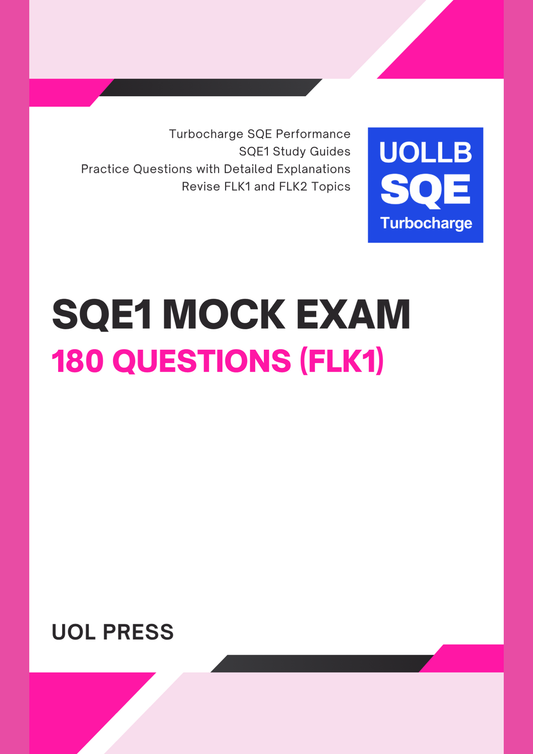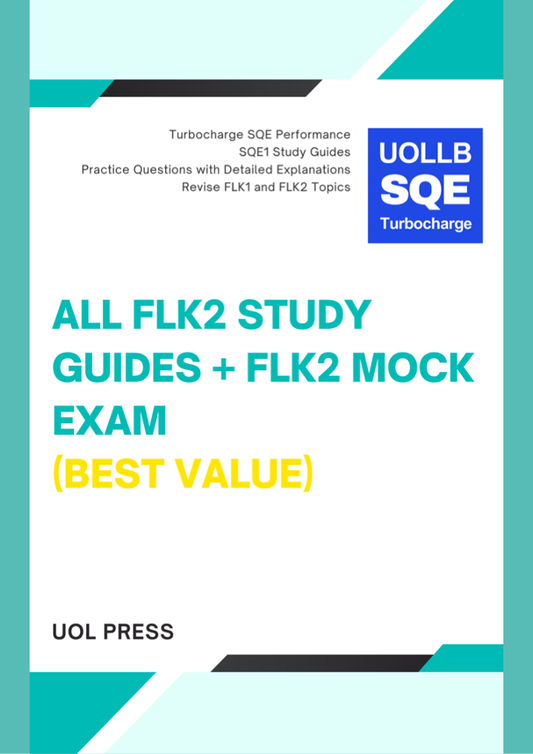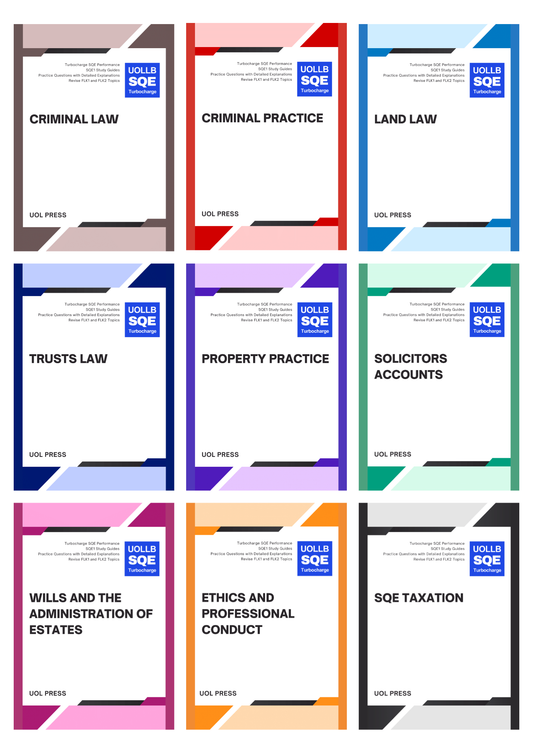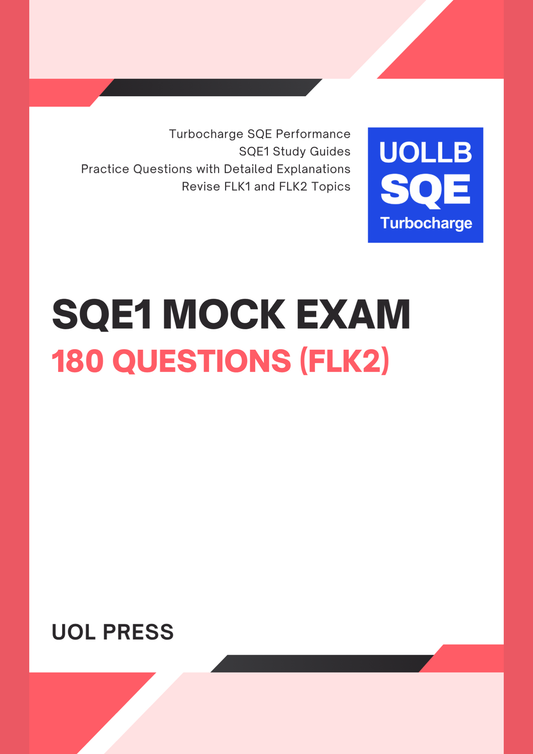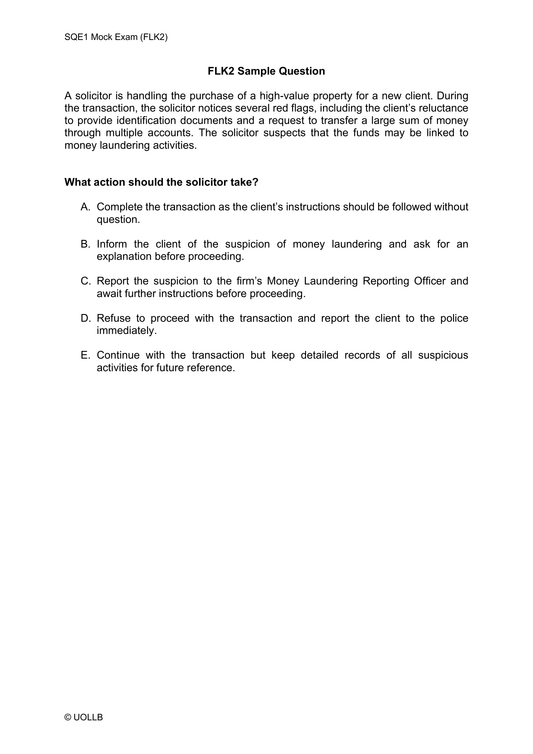SQE1 Single Best Answer Questions
Share
The Solicitors Qualifying Examination (SQE) uses a distinctive type of multiple-choice question known as the single best answer MCQ. Borrowed from fields such as medical training, this format presents a unique challenge because it requires a more refined approach compared to traditional MCQs. While both formats ask you to select the correct answer, single best answer questions are designed to test your ability to engage deeply with the material and differentiate between answers that may all seem plausible.
In traditional MCQs, the incorrect options, known as distractors, are often obviously wrong. They typically present answers that are either factually inaccurate or implausible, making it easier for you to eliminate them and arrive at the correct choice. These questions are often simpler because the distractors are so clearly incorrect, allowing you with a basic understanding of the subject to succeed.
However, single best answer MCQs are structured differently. In this format, all of the available answer options may appear valid at first glance, as several of them might include correct legal principles or statements. The difficulty lies in the fact that only one option is the best answer, which is the most accurate or appropriate response given the specific context of the question. This requires you to carefully analyse each option, comparing subtle differences that distinguish the best answer from other seemingly correct ones.
To tackle these questions effectively, you must engage with the material on a deeper level. It is essential to read the question carefully and consider all the factual details presented, as small nuances can influence which option is the best answer. Rather than quickly eliminating options, you need to examine each choice closely and understand how each answer applies to the legal issue at hand. This type of question tests not only your knowledge of legal principles but also your ability to apply that knowledge in a specific context.
In summary, single best answer MCQs are designed to test not only a your knowledge of legal principles but also your ability to apply that knowledge with precision. Success in the SQE depends on understanding the difference between correct answers and the best answer, which requires thorough engagement with the material and a deeper analytical approach to each question.
In traditional MCQs, the incorrect options, known as distractors, are often obviously wrong. They typically present answers that are either factually inaccurate or implausible, making it easier for you to eliminate them and arrive at the correct choice. These questions are often simpler because the distractors are so clearly incorrect, allowing you with a basic understanding of the subject to succeed.
However, single best answer MCQs are structured differently. In this format, all of the available answer options may appear valid at first glance, as several of them might include correct legal principles or statements. The difficulty lies in the fact that only one option is the best answer, which is the most accurate or appropriate response given the specific context of the question. This requires you to carefully analyse each option, comparing subtle differences that distinguish the best answer from other seemingly correct ones.
To tackle these questions effectively, you must engage with the material on a deeper level. It is essential to read the question carefully and consider all the factual details presented, as small nuances can influence which option is the best answer. Rather than quickly eliminating options, you need to examine each choice closely and understand how each answer applies to the legal issue at hand. This type of question tests not only your knowledge of legal principles but also your ability to apply that knowledge in a specific context.
In summary, single best answer MCQs are designed to test not only a your knowledge of legal principles but also your ability to apply that knowledge with precision. Success in the SQE depends on understanding the difference between correct answers and the best answer, which requires thorough engagement with the material and a deeper analytical approach to each question.
